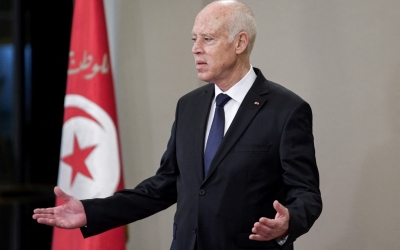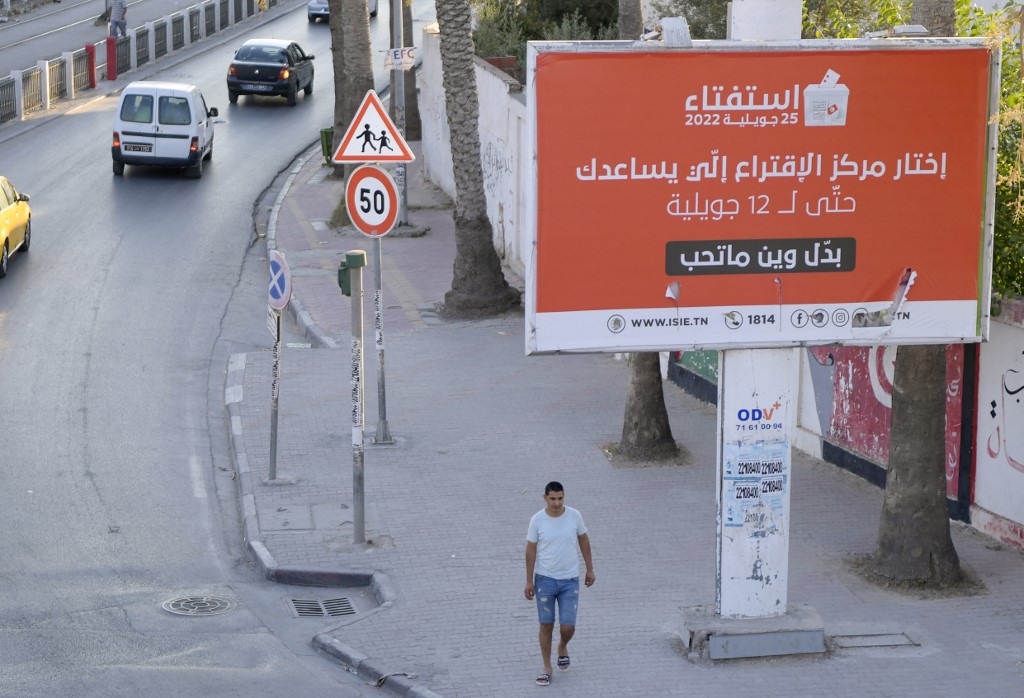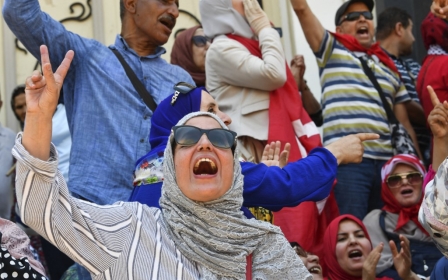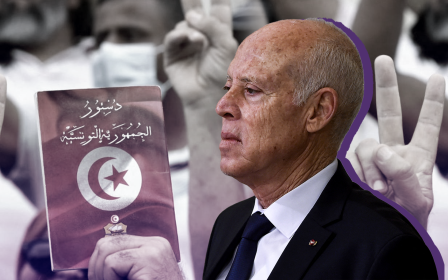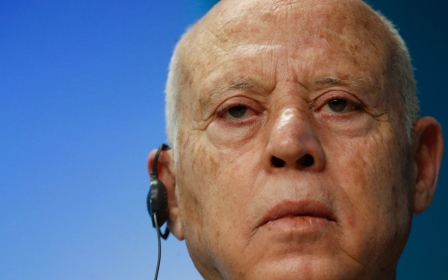Tunisia: Saied's once-passionate voters split over his power grab, one year on
When Jamel Jelassi voted for Kais Saied three years ago in the second round of presidential elections, he did not think Saied's win could threaten Tunisia's nascent democracy.
"I voted for him in 2019, but I am utterly disappointed," the 35-year-old engineer told Middle East Eye.
"I am disgusted by his populist speech. He never respected the constitution, he treated all his opponents as traitors," said Jelassi, who plans to boycott the constitution referendum set for Monday.
Jelassi is not alone in his disappointment with Saied, who once appealed to young Tunisians as the outsider professor-turned-politician who could fix the country.
Tunisia's youth, those who backed Saied's rise to power, are now split over their support for Saied and the proposed constitution he has put forward, which has been widely denounced as an attempt by the president to enshrine his "one-man rule".
New MEE newsletter: Jerusalem Dispatch
Sign up to get the latest insights and analysis on Israel-Palestine, alongside Turkey Unpacked and other MEE newsletters
The vote on Monday will fall on the first anniversary of Saied's controversial seizure of extensive powers on 25 July last year, promoted as a move to save the country from "impending danger".
After the power grab, the plans for which were first revealed by Middle East Eye, Saied decided to rule by decree, a move opponents see as "a constitutional coup".
Since then, he has suspended parliament, dissolved the country's highest independent judicial body, and handpicked members of the national election authority.
More recently, he sought to rewrite the country's first post-revolution constitution, written in 2014, in a process decried by many as undemocratic.
Under the new constitution, the president will have vast authority over the government and judiciary, significantly weakening the role of parliament.
'I voted for him in 2019, but I am utterly disappointed... I am disgusted by his populist speech'
- Jamel Jelassi, former Saied supporter
The new document "enumerates many rights" Human Rights Watch said, "but eviscerates the checks and balances needed to protect them".
On the eve of the vote, a youth group called "Young Leaders in Tunisia" issued a warning in a similar tone.
"The draft makes no reference to universal human rights and does not recognise the separation of powers," the group wrote on its Facebook page.
"The president of the republic has broad powers that make him the main actor of the executive branch, giving him dominance over the political system as a whole, without any checks and balances."
For this reason, and through concern that the new constitution will empower Saied further, many like Jelassi are now vocal in their opposition.
But some of those who first supported the president's 2021 power grab are still willing take the risk and stick by him all the way.
Support despite unmet expectations
A former apolitical retired law professor, Saied was propelled to his presidential victory in the 2019 elections by a tidal wave of support from young voters, lured by the carefully styled anti-establishment platform he presented.
According to polls, he scooped up about 90 percent of the young electoral vote at the time.
"I voted for Kais Saied because he has the profile of the politician the country needs," Ahmed Kadhri, a 29-year-old computer engineer, told MEE.
"He is an honest man, clean, different from the whole political scene and distant from those political parties that have destroyed the country for 10 years," he said.
Kadhri's anger echoes widespread youth disillusionment with the politicians who led the country after the 2010 revolution.
Frustrated by perceived incompetence to fix a declining economy and numerous corruption scandals, many saw Saied's lack of political background as a breath of fresh air.
When he launched his power grab measures two years later, he promoted it as a vital step to restore stability in the crisis-ridden country.
For many of his young voters, this was the right move, and still is.
"Dissolving the national assembly, responsible for all our misfortune, was his best decision ever," Sameh Dridi, a 27-year-old English teacher, told MEE.
"I only regret that he hasn't punished the political parties; we have suffered because of them for 10 years."
Even for those who believe that expectations from the power grab moves last year were not met, as in the case of Marwa Bakloufi, support for Saied hasn't completely waned.
"In daily life, I don't notice that anything has changed, and he has neglected the economy," the 32-year-old entrepreneur, who still hasn't decided if she'll vote on Monday, said.
"If I participate I'll vote 'yes' to turn the page and finish with the 10 years of corruption and misery."
Political indifference
However much young Tunisians may or may not support Saied, their voting power remains largely weak, according to Mohamed Ali, co-founder of pollster Insights Tunisia.
The main reason for a lack of interest in politics among the youth is down to repeated economic disappointments in the past 10 years, Ali told MEE.
"Like many adults, young people have dropped out completely. They have turned their backs on politics altogether," said Ali.
"Youth who are politically engaged live mainly in the big cities and belong to the better-off section of the population."
For this reason, claims about Saied's popularity among youth should be put into perspective, the polling expert said. "Youth turnout during elections is limited, so his seemingly large number of young fans is not representative."
Earlier this year, Saied launched an online public consultation ahead of drafting the new constitution.
The consultation, aimed at collecting public input into the constitution, closed in March with just 7.6 percent of the seven million electorate taking part, according to official figures.
Of those, young people were "sorely underrepresented," Ali said.
"Of the group of people between 16 and 19 years old, not even 4 percent participated. And only 17 percent of people up to 29 years bothered to fill out the questions."
In the end, whether young Tunisians vote yes or no, or just boycott the 25 July vote, the outcome may not be decided by them.
But for some, like Nada Ferchichi of the Ennahda Youth Council, who initially voted for Saied, the fight is now bigger than the referendum.
"Voting for Kais Saied was our worst decision ever. No matter what mistakes have been made, nothing justifies the shutting down of the parliament with tanks and dismissing the government," Ferchichi told MEE.
"I am fighting for our freedom... The fact that the president's powers cannot be checked is the worst part for me."
Middle East Eye delivers independent and unrivalled coverage and analysis of the Middle East, North Africa and beyond. To learn more about republishing this content and the associated fees, please fill out this form. More about MEE can be found here.


